THIS week marks the death anniversary of one of Bollywood’s greatest male-playback singers Mohammed Rafi, who sadly passed away on July 31, 1980, after suffering a heart attack.
Despite being only 55 when he died, the magically voiced icon left behind a magnificent body of work that continues to entertain audiences and inspire music artists.
The thousands of songs, including alltime classics, remain a permanent part of popular culture and why he will always be remembered globally.
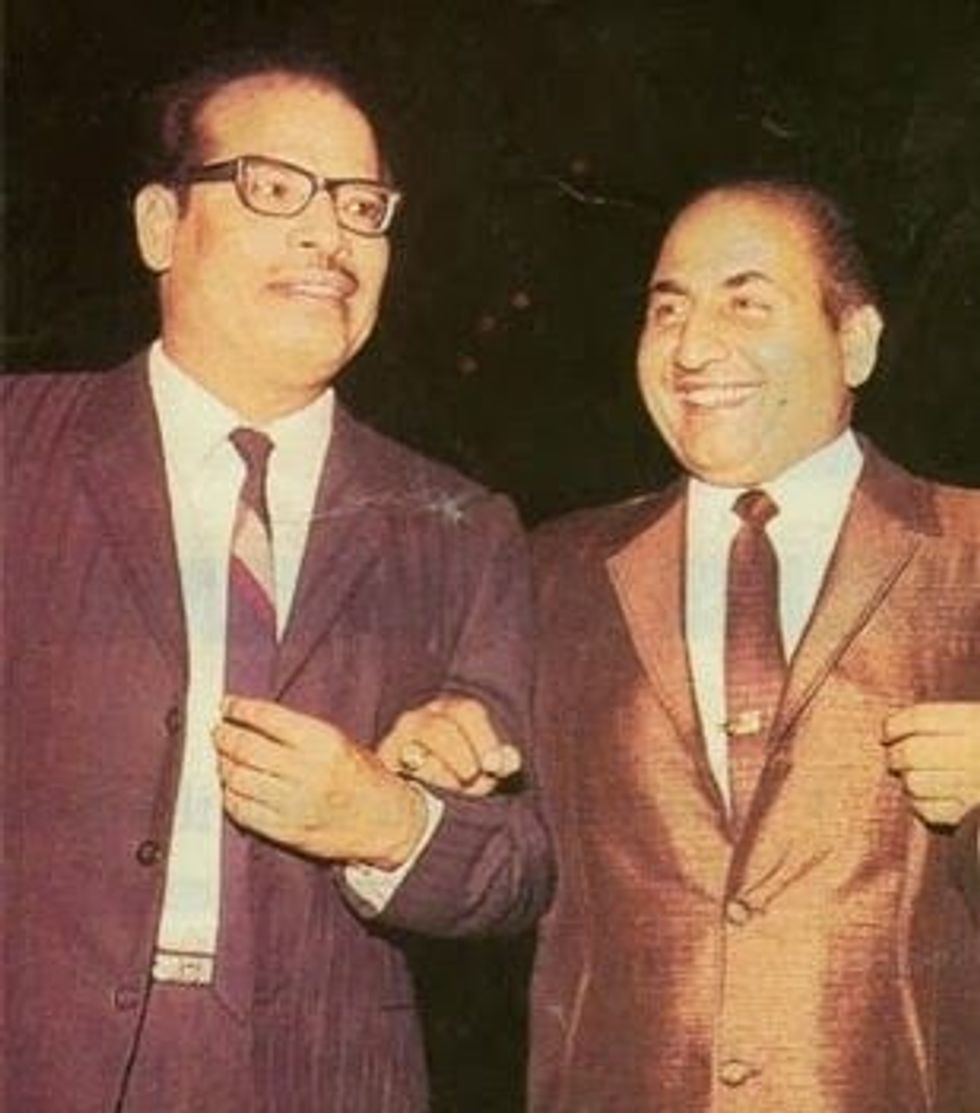
Eastern Eye decided to celebrate the singer with a heaven-sent voice by collecting tributes that have been paid to him across the decades from legends, including those who have passed away.
Manna Dey: He was such a gentleman. He was a better singer than me, and I will say this, that no one came even close to him. He deserved everything he got. We had a great understanding, and it was never about one-upmanship.
Asha Bhosle: The beauty of Rafi saab is that right from the door of the studios, he would start wishing everyone, ‘aadab’. He would never fight with anyone. If anyone said something to him, he would stay quiet and would not answer. I would get irritated. I would ask him why he would not answer back. He would then tell me to let it go, there was no point in replying. Woh Allah ke aadmi the (he was a man of god). He would never praise himself – the pride of his popularity would not even show on his face.
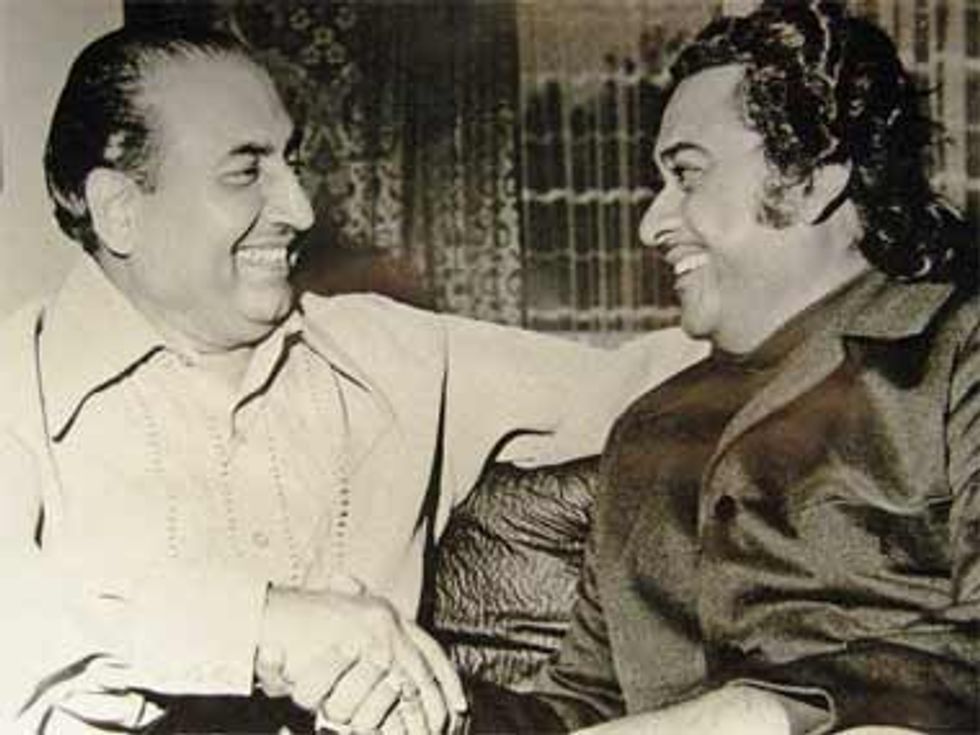
Sonu Nigam: Rafi saab is god to me. I have grown up listening to him and imitating him in my early years.
Kishore Kumar: I had great regard for Rafi – a singer of a rare calibre.
Jagjit Singh: Rafi saab had immense versatility and an ability to take on the personality of the hero on whom the song was filmed. Every time you hear a Rafi song, you see the hero, you can vividly put in place the situation and correctly access the mood.
Nitin Mukesh: Among his contemporaries, my father’s (Mukesh) favourite singer was Mohammed Rafi. He loved Rafi saab’s voice and believed that nobody could replace him.
Khayyam: Rafi saab was the pride of India. His voice and memories are still with us even though his body has left us.
Amitabh Bachchan: What can one possibly say on one that possessed perfection.
OP Nayyar: I loved Mohammed Rafi. His death was a big loss to me. When I composed for Shammi Kapoor or Johnny Walker, he managed to sound like them. He sang so many wonderful songs for me. Rafi miyan was a wonderful person. Nobody can ever be compared to him.
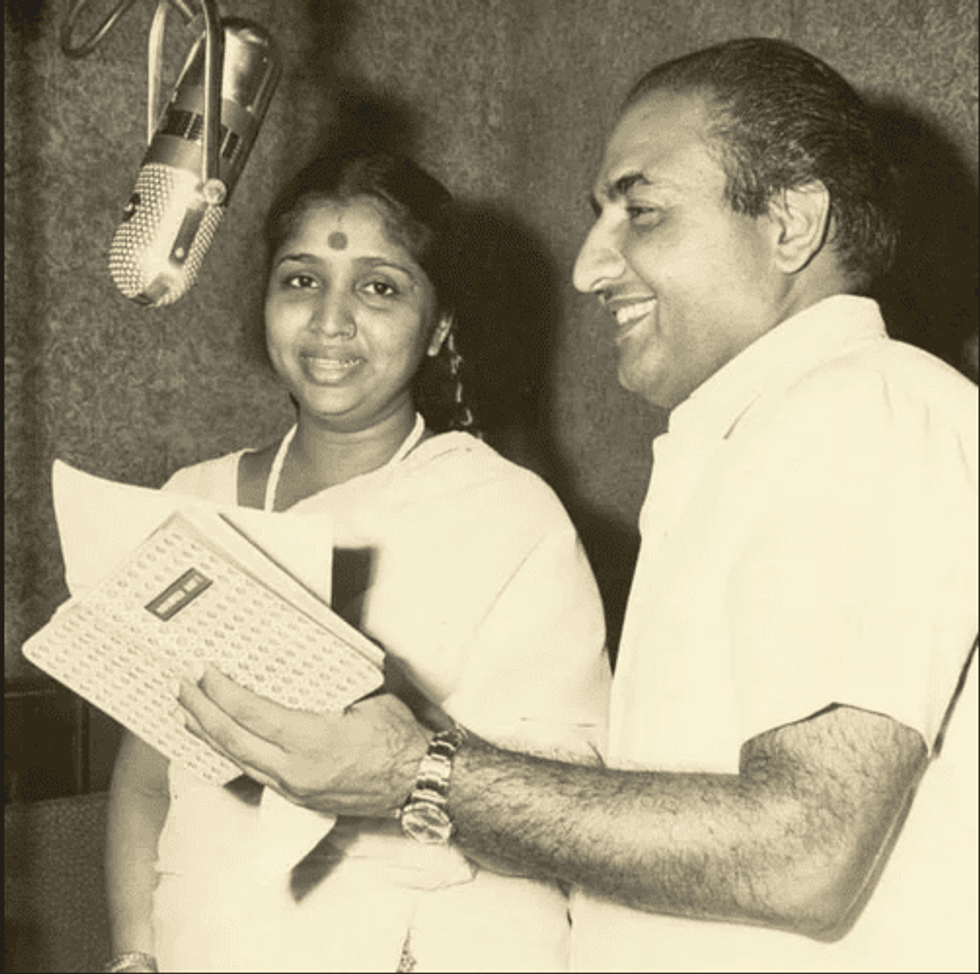
Raj Kapoor: In the world of music, the uncrowned king of singing has left us.
Manmohan Desai: Mohammed Rafi – I worship this man. I’ve been his greatest fan – I should call it ‘devotee’. Ever since I was a kid, I remember I used to go to his recordings, hear him, and I used to go and touch his feet. And then, when my films started, he sang all my songs. And I personally feel he died at a very young. I feel it was the voice of a god. And the gods wanted to hear him personally, that is why they took him up so young.
Naushad: He earned respect, and his popularity touched the sky. The magic of his voice enthralled the whole world. His popularity, respect and wealth all increased tremendously, yet he always remained modest. Like a fruit-bearing tree, the more he fructified, the more he bent in front of the world. His heart was filled with fear of god and the love for truth. Generosity and altruism were part of his system. god and truth were the only sources of inspiration for him.
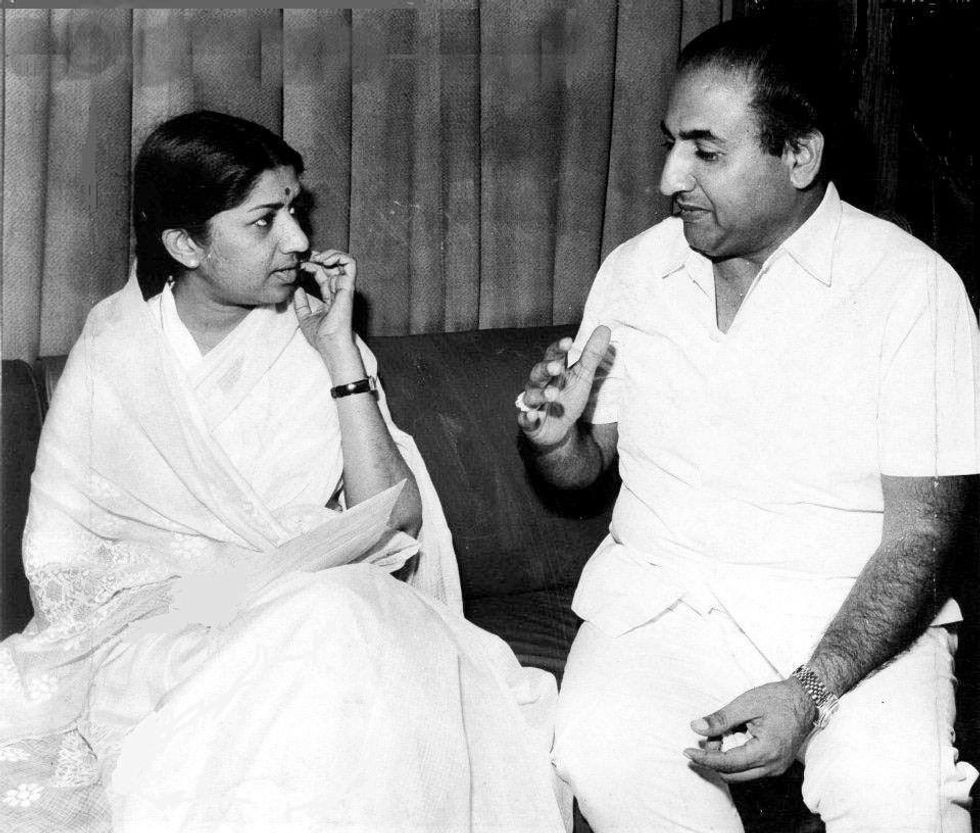
Lata Mangeshkar: What a voice. It could move mountains. When I sang with Rafi saab I had to be on my toes. His knowledge of the ragas and Hindustani classical sangeet made him formidable in the recording room. We took up very challenging compositions together and I’m proud to say we came out with flying colours.
Anand Bakshi: Even today when I write something I imagine how it would sound if Rafi saab had sung it. His place can never be filled again.
Laxmikant: He was a great human being. He would never ask what he was going to be paid for a song. Apart from waving off payments, he even helped producers financially. He’d help out the needy. He always gave without thinking of the returns. Once Rafi recorded six songs in a day for us. Imagine, he could memorise six songs in a day! And he could do this at live recordings and not through the easy dubbing method that’s on today.
The demand for Mohammed Rafi’s songs is phenomenal. No other singer, not even Lata Mangeshkar, has been able to attract such a tremendous following. It’s almost as if he were still alive.
Shammi Kapoor: When I was told Rafi saab had passed away, I wept. I felt like my voice had been taken away. But he was immortal, and his beautiful voice will be there forever, with the melodious songs he left us. He sang them in a way only he could. I miss him dearly.
Pankaj Udhas: I remember there was heavy rain when I heard about the passing of Rafi it was as if the sky was weeping. Whatever you say about him will never be enough. All I can say is that it was a blessing to have met Rafi saab, heard him sing many times and seen him record. I feel fortunate to have made those moments with him. I listened to him since childhood and learned a lot listening to him.
Dilip Kumar: Mohammed Rafi had the god-given ability to mould and adapt his rendering of a number according to the given situation in the film, the characters, mood of the time, the overall nature and disposition of the character in the film and the milieu of the film.
Dev Anand: Rafi saab is indeed immortal and will always be around and in our hearts and soul. I admire his voice and range immensely.

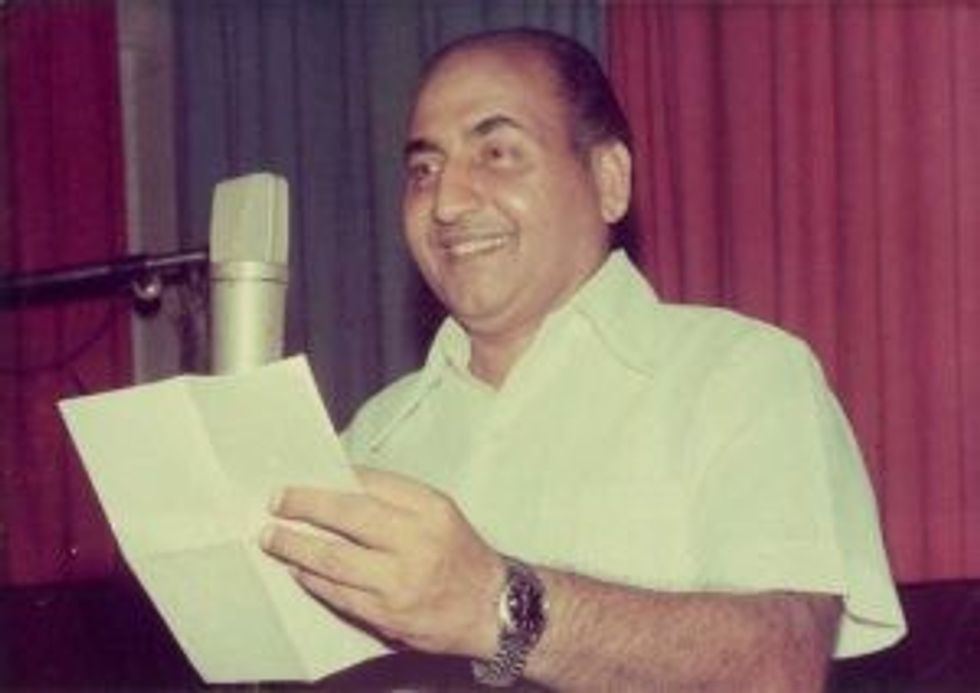





 Bhavin Bhadresa’s vibrant pop art blends Indian culture, nostalgia, and humour in striking graphic compositions
Bhavin Bhadresa’s vibrant pop art blends Indian culture, nostalgia, and humour in striking graphic compositions Bhadresa’s work celebrates diaspora identity with humour and vibrant visuals
Bhadresa’s work celebrates diaspora identity with humour and vibrant visuals A playful twist on heritage – Bhadresa’s art turns Gujarati sayings and Bollywood drama into modern masterpieces
A playful twist on heritage – Bhadresa’s art turns Gujarati sayings and Bollywood drama into modern masterpieces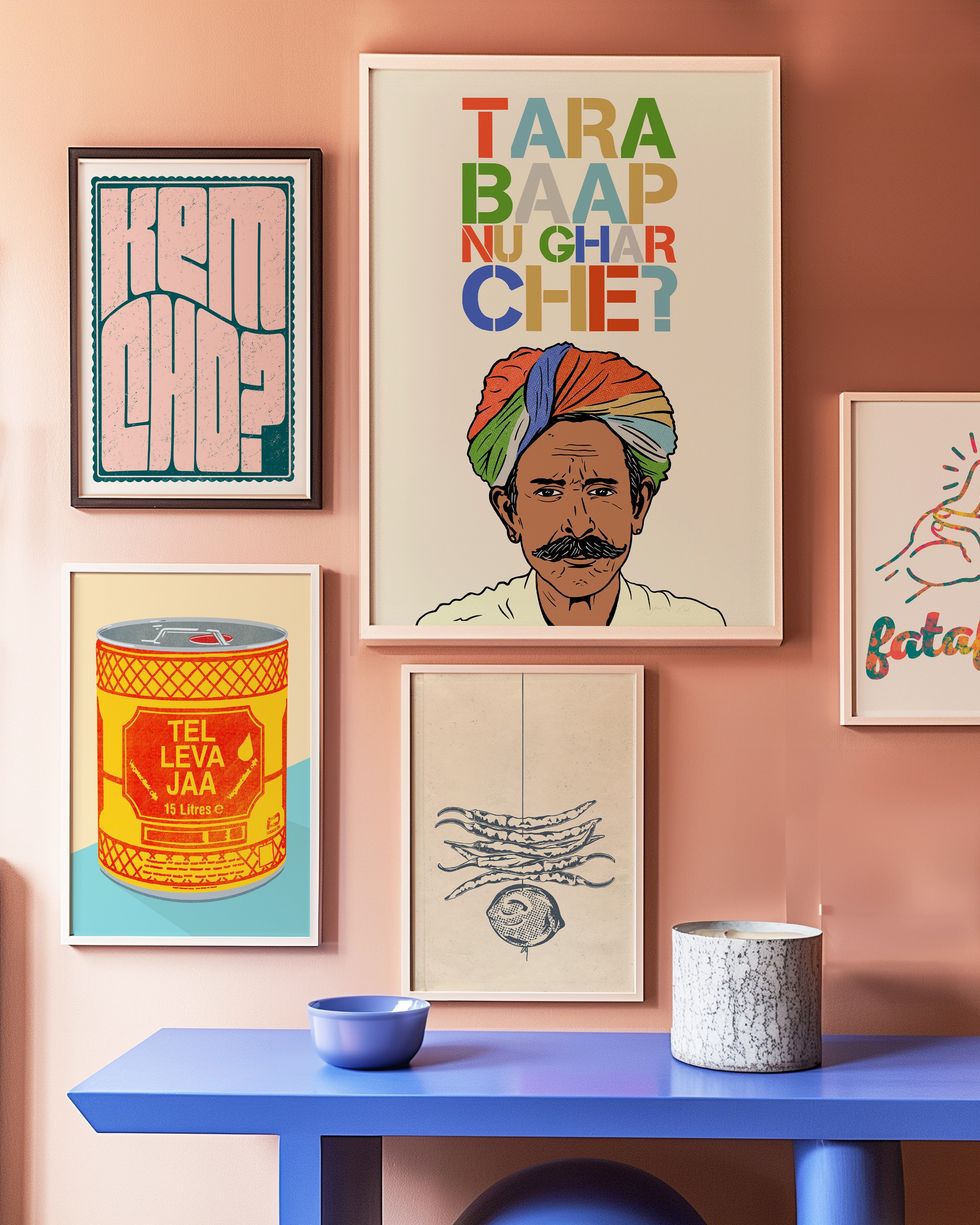 Bollywood glamour meets street art edge in Bhadresa’s visually arresting cultural tributes
Bollywood glamour meets street art edge in Bhadresa’s visually arresting cultural tributes









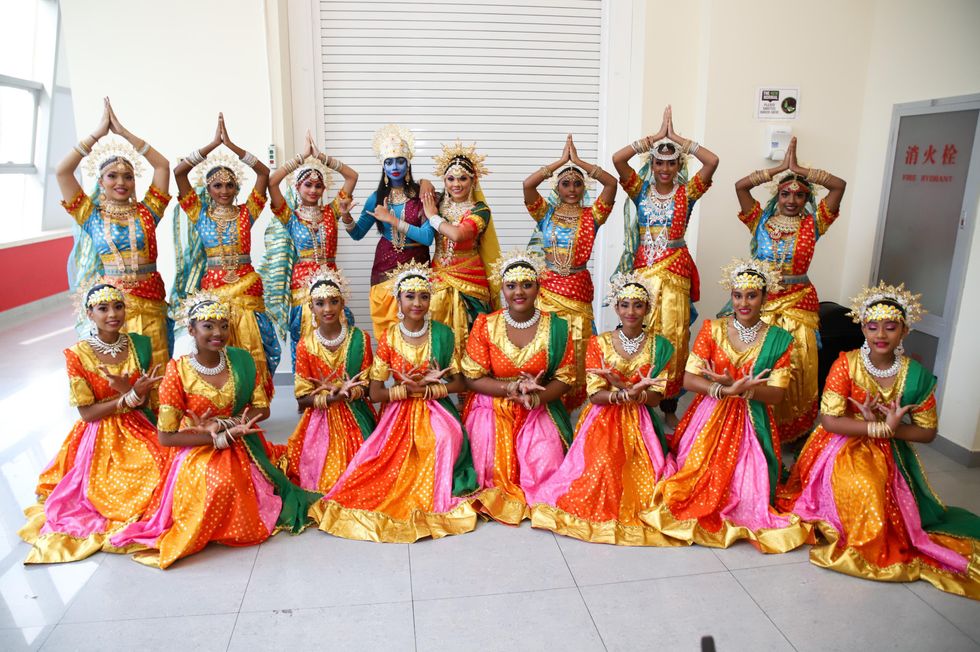 Leeann Dass with her studentsInstagram/ leeann_411
Leeann Dass with her studentsInstagram/ leeann_411

 Hotel Amba Yaalu is designed to promote women in a tourism sectorGetty
Hotel Amba Yaalu is designed to promote women in a tourism sectorGetty